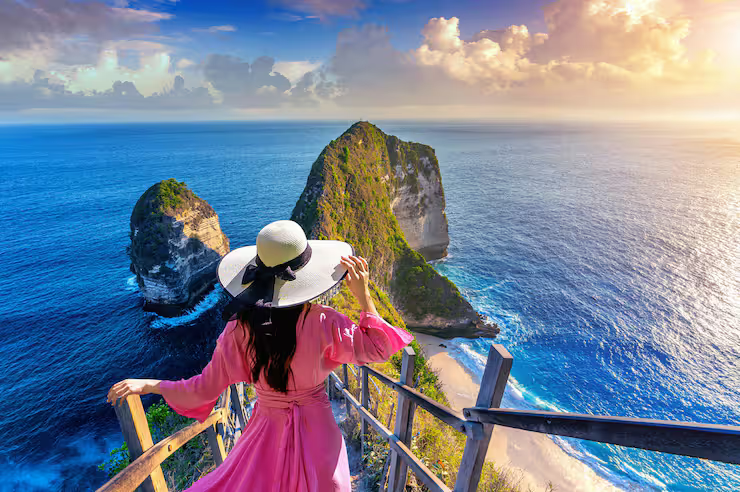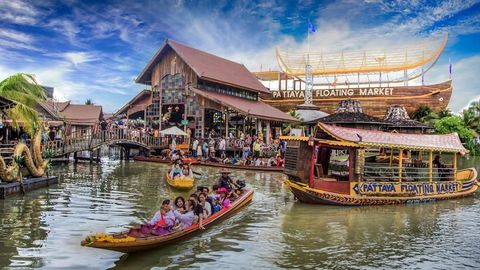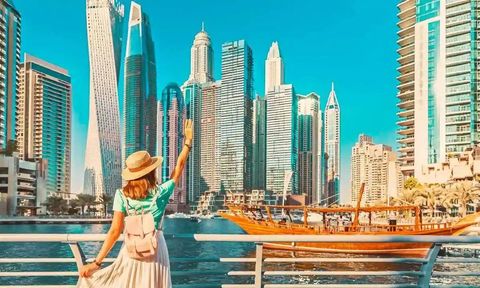Over the years, the concept of Bali tours and travel packages has evolved beyond traditional sightseeing. Today’s travelers seek experiences that blend adventure, relaxation, and authenticity — from exploring rice terraces in Ubud to surfing in Canggu or diving in Nusa Penida. This shift has encouraged the development of customizable travel packages that cater to wellness tourism, eco-friendly adventures, digital nomad lifestyles, and family-friendly experiences.

Importance
Traveling to Bali today is not just about a vacation; it reflects a growing global interest in sustainable and meaningful travel. As people look for balance after the global disruptions of recent years, destinations like Bali offer a combination of nature, culture, and personal renewal.
Why Bali Matters for Travelers and the Local Economy:
-
Cultural Diversity: Bali’s temples, dance traditions, and ceremonies create a deep connection between travelers and local heritage.
-
Affordable Luxury: Bali offers world-class hospitality and experiences at competitive prices compared to Western destinations.
-
Sustainability Focus: Many resorts and tour operators now emphasize eco-friendly practices, reducing plastic use and promoting conservation.
-
Community Empowerment: Tourism supports local artisans, farmers, and guides, driving inclusive economic growth.
-
Wellness and Digital Work: The island has become a hub for yoga retreats, meditation centers, and remote workspaces.
Bali’s appeal lies in its ability to cater to different traveler types — adventure seekers, couples, families, or professionals looking for a work-life balance in a tropical setting.
Recent Updates
The year 2024 marked a strong revival of Bali’s tourism sector. According to Indonesia’s Ministry of Tourism and Creative Economy, the island welcomed over 5.2 million international visitors in 2024 — a 35% increase from the previous year. This recovery was supported by new infrastructure, relaxed visa regulations, and digital tourism initiatives.
Notable Trends in 2024–2025:
| Trend | Description |
|---|---|
| Digital Nomad Visa | Bali introduced the "Second Home Visa," allowing foreigners to stay for up to 5 or 10 years for work or leisure. |
| Eco-Friendly Tourism | Growth in sustainable resorts, organic cafes, and eco-tours across Ubud, Sidemen, and Munduk. |
| Smart Travel Tools | Increased use of mobile apps for trip planning, ticket booking, and cashless transactions. |
| Cultural Preservation | Government initiatives to promote Balinese art, craft, and dance performances in tourism zones. |
| Improved Infrastructure | New road expansions and airport upgrades to handle higher tourist volumes efficiently. |
The post-pandemic tourism landscape emphasizes quality over quantity. The Indonesian government now encourages responsible tourism — promoting longer stays, deeper cultural connections, and environmental respect.
Laws and Policies
Traveling to Bali involves a few rules and policies designed to protect visitors, locals, and the island’s ecosystem. Understanding these regulations helps ensure a safe and lawful experience.
Key Travel and Tourism Regulations:
-
Visa Policies:
-
Visa on Arrival (VoA): Available for citizens of over 90 countries for up to 30 days, extendable once for another 30 days.
-
Tourist Visa: For longer stays, visitors can apply for B211A tourist visas.
-
Digital Nomad / Second Home Visa: For long-term visitors who can show proof of financial stability (minimum IDR 2 billion in savings).
-
-
Tourist Levy:
From February 2024, the Bali government introduced a tourist tax of IDR 150,000 (approx. USD 10) per visitor to support cultural preservation and environmental programs. -
Environmental Regulations:
The use of single-use plastics, such as bags and straws, is banned across the island. Travelers are encouraged to use reusable water bottles and bags. -
Traffic and Safety:
Foreigners must have an International Driving Permit (IDP) to rent and operate motorbikes legally. Helmets and seat belts are mandatory. -
Accommodation Registration:
Only registered hotels, villas, and homestays can legally host tourists. Booking through verified platforms ensures compliance with local tourism standards.
These policies reflect Bali’s ongoing effort to balance tourism growth with environmental and cultural sustainability.
Tools and Resources
Planning a trip to Bali has become easier thanks to numerous digital tools, official apps, and online services designed to simplify travel research and logistics.
Helpful Tools and Travel Resources:
-
Indonesia Travel App (by Ministry of Tourism): Provides official travel information, safety updates, and destination guides.
-
Bali.com: Comprehensive website featuring itinerary ideas, package options, and visa information.
-
Google Maps & Grab App: For local navigation and ride-hailing services.
-
Booking.com & Agoda: Reliable platforms for comparing hotels, villas, and guesthouses.
-
XE Currency Converter: For real-time currency exchange updates.
-
Traveloka: Popular regional platform for flight and hotel booking with local payment options.
-
Weather.com: For accurate forecasts, especially important during the rainy season (November–March).
-
TripAdvisor & Klook: Trusted for user reviews and booking local tours or experiences.
-
Health Apps: PeduliLindungi (used in Indonesia for health safety updates).
Sample Itinerary Planning Table:
| Duration | Suggested Focus | Key Highlights |
|---|---|---|
| 3 Days | Beach & Culture | Uluwatu Temple, Kuta Beach, Tanah Lot |
| 5 Days | Nature & Wellness | Ubud rice terraces, Tegenungan Waterfall, Yoga retreat |
| 7 Days | Adventure & Islands | Nusa Penida, Mount Batur sunrise trek, Snorkeling in Amed |
Using these tools ensures travelers can make informed, efficient, and budget-conscious decisions while exploring the island.
FAQs
1. What is the best time to visit Bali?
The dry season, from April to October, offers the best weather for outdoor activities, beaches, and sightseeing.
2. Do I need a visa to visit Bali?
Citizens of many countries are eligible for a Visa on Arrival (VoA) for 30 days. Others may need to apply for a tourist visa or digital nomad visa based on their travel purpose.
3. Is Bali safe for solo travelers?
Yes, Bali is generally safe. However, travelers should take standard precautions such as using reputable transport services and avoiding unlicensed money changers.
4. What should I avoid in Bali?
Avoid littering, disrespecting temples, or using drones in restricted areas. Always follow dress codes when visiting religious sites.
5. How much does a Bali travel package typically cost?
Budget travelers can expect packages starting from USD 600 for 5 days, while luxury experiences can exceed USD 2,000, depending on accommodation and activities.
Final Thoughts
Bali continues to stand out as a destination that blends natural beauty, spiritual depth, and cultural vibrancy. Whether you’re seeking adventure, tranquility, or a creative escape, the island provides a wide range of experiences that fit every traveler’s lifestyle.
Understanding Bali’s tourism structure — from current trends and travel laws to useful planning tools — helps travelers make responsible choices and enjoy a more authentic journey. As tourism evolves, the focus remains on preserving what makes Bali truly unique: its people, traditions, and harmonious connection with nature.






